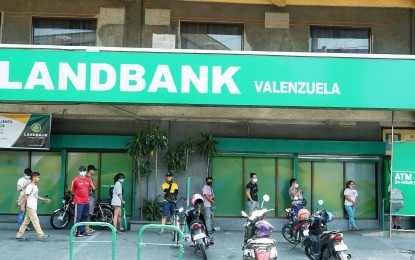The government has instructed the Land Bank of the Philippines (LandBank) to lead the country in achieving an inclusive financial system and economic growth, a Cabinet official said on Friday.
“LandBank should be at the forefront in transforming into reality the Marcos administration’s goals of achieving a truly inclusive financial system and long-term economic growth that benefits all Filipinos,” Finance Secretary Benjamin Diokno said.
He noted how this mandate evolved and expanded to serve other critical sectors to support the government’s move toward greater financial inclusion and national development.
“LandBank is among government financial institutions mandated under the Agriculture, Fisheries, and Rural Development Financing Enhancement Act of 2022 or the Agri-Agra law to manage a special fund partly for extending loans with minimal interest rates and collateral requirements to farmers, fisherfolk, cooperatives, associations and microfinance institutions,” Diokno added.
As of June 30, LandBank’s agri-loan portfolio has reached a total of P257.7 billion, making it the largest lender to the agriculture sector. The amount is 15.5 percent higher than the same period in the previous year.
The secretary also said that the state-owned institution has also been a reliable development partner for private entities and the government by acting as the latter’s primary distribution channel for financial assistance programs.
“These include the Pantawid Pamilyang Pilipino Program, Unconditional Cash Transfers, fuel subsidies, grants to rice farmers and the COVID-19 Social Amelioration Program,” Diokno said.
The bank has granted loans and spearheaded lending programs to support Housing and Health, Local Government Units (LGUs), Small & Medium Enterprises (SMEs) as well as Microfinance Institutions (MFIs), especially those struggling during the pandemic. It has also intensified its efforts to target individual farmers and fishers.
“LandBank has been at the forefront of banking the unbanked. Through our partnership in the rollout of the Philippine Identification System, more than 8 million formerly unbanked Filipinos now have their bank accounts,” Diokno said.
The secretary aims to fast-track the rollout of such programs in line with his goal of onboarding 70 percent of Filipino adults into the formal financial system by 2023.
